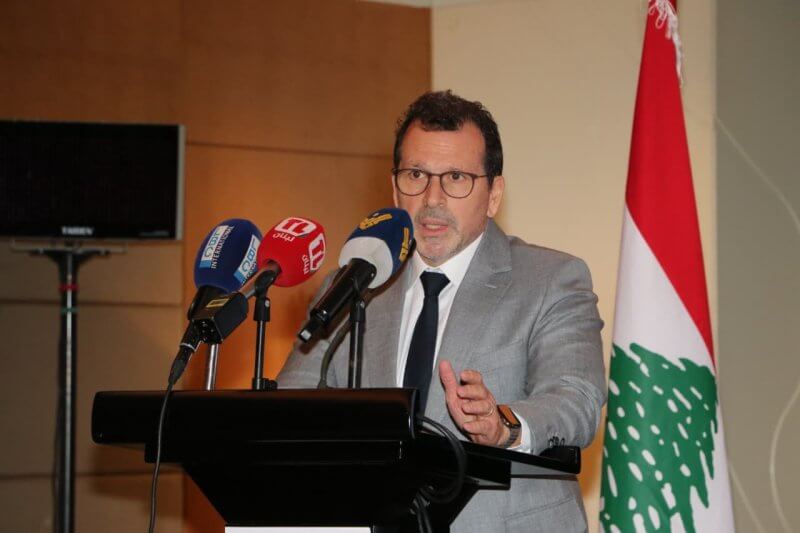Lebanon has joined the global AI technology race, following the decision by the Lebanese government to form a new digital ministry that aims to transform governance, attract investors, and harness the power of diaspora innovation.

In a landmark decision described as a turning point in public sector modernization, the Lebanese Council of Ministers has approved the draft law to establish the country’s first Ministry of Technology and Artificial Intelligence (MITAI), which now awaits parliamentary approval.
The new ministry represents the country’s first institutional creation since 1993, following the Ministry of the Displaced.
It marks the transformation of the existing State Ministry into a fully independent body, signaling a national commitment to digital governance and technological advancement.
“This decision is not merely an administrative adjustment,” said Dr. Kamal Shehadi, Minister of the Displaced and Minister of State for Technology and Artificial Intelligence. “It is a strategic step that reflects a clear political will to invest in Lebanon’s future and to build an economy rooted in knowledge, technology, and digital transformation.”
Dr. Shehadi, a seasoned economist and policy expert with a PhD in Political Economy from Columbia University and a degree from Harvard University. He previously served as Chairman of Lebanon’s Telecommunications Regulatory Authority and held senior executive roles in major telecom firms across the Middle East, where he led digital transformation and legal modernization initiatives. In his current dual role, he is at the forefront of Lebanon’s institutional modernization. The goals of the newly established ministry are explicitly outlined in the government’s charter and endorsed by the President, making it a central pillar of the national policy agenda.
The Ministry of Technology and AI will be responsible for shaping national digital strategy and accelerating Lebanon’s transition into a knowledge-based economy.
Its mandate spans from creating smart governance frameworks and inclusive digital policies to building public-private partnerships and fostering innovation.
MITAI will also oversee the development of a unified national digital platform for public services, enhance cybersecurity measures, protect personal data, and stimulate the digital economy through skills training, job creation, and strategic investment. Internationally, the ministry aims to position Lebanon as a regional hub for technology and innovation, attracting investors and showcasing the creative potential of Lebanese talent.
“Lebanon, with the intellect and creativity of its people at home and abroad, deserves a global leadership position in technology,” Shehadi said. “Transforming this ministry into an independent institutional entity is the beginning of that journey.”
Following the announcement, Tahawul Tech spoke with Minister Shehadi about Lebanon’s digital future, its challenges, and the opportunities awaiting Lebanese citizens and diaspora alike.
What are the immediate priorities of the new Ministry?
“Our top priority is building institutions capable of propelling Lebanon into the digital age. That means:
- Finalizing the legal and financial structures that support transformation;
- Delivering government services with dignity, transparency, and efficiency; and
- Creating an environment where Lebanese talent—especially from the diaspora—can invest, return, and thrive.”
Shehadi emphasized that transformation is already underway:
“We’ve initiated digital projects across more than half of Lebanon’s ministries, including the digitization of health records and streamlining civil registry services. We’re also collaborating with municipalities nationwide to ensure this transformation is inclusive.”
What are the main challenges for you and your team?
“Speed,” Shehadi said. “We have the will, the talent, and the roadmap. But we must leapfrog, not step-walk. Even before the law’s approval, we were laying groundwork. We’re finalizing key digital laws, activating global partnerships, and building momentum. Lebanon has lost time; we intend to make up for it with urgency.”
Given regional advancements, how does Lebanon plan to collaborate with other more advanced nations in the region?
“The region offers valuable models, and the countries and their leaders have been nothing short of supportive of our journey. We have strong government partners and great examples of success in government-to-government, government-to-citizen, and other digital transformation spaces. We’re not starting from zero, nor are we reinventing the wheel. The world offers valuable models, and we have an open mindset to all. Our ministry will serve as an orchestrator—connecting public entities, private sector expertise, and international best practices.”
He added: “But Lebanon isn’t destined to follow. We aim to lead through innovation. Our greatest asset is our people: their resilience, creativity, and human-centric approach to technology. That’s what will distinguish Lebanon on the global stage.”
Lebanon has created ministries before, but MITAI represents a reimagining of governance in the digital era. Its success won’t be judged by the number of systems launched or laws passed, but by whether citizens can register children for school online, receive healthcare services digitally, or launch businesses without drowning in paperwork.
If Kamal Shehadi’s vision takes hold, Lebanon could leap from stagnation to leadership—not by mimicking others, but by boldly crafting its own digital future.





